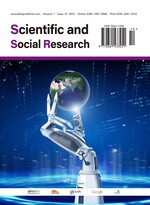Abstract
This paper focuses on the construction logic of historical memory in the foreign policies of Spanish-speaking countries, such as Spain and Latin American countries, against the backdrop of globalization. With the help of historical memory theory and the construction model of international identity, this paper studies how the colonial heritage and Cold War experience affect the formation of identity narrative in contemporary diplomatic decision-making. The memory of plundering resources in the colonial era prompts Mexico and other countries to further strengthen their resource sovereignty policies. The legacy left by the independence movement continues the process of regional integration by virtue of Bolivarianism. The memory of the intervention of the United States and the Soviet Union during the Cold War prompts Cuba and other countries to develop ideological medical diplomacy. At the level of international identity building, Spanish promotes the convergence of the Ibero-American community in the form of cultural ties. Similarly, in view of the differences in the recognition of the “former colonist colonized” identity between Spain and Latin American countries, it has triggered regional cooperation conflicts. Taking the case studies of Spain, Mexico, and Argentina as the approach, this paper points out that there is a “double-edged sword” effect in the historical memory of foreign policy: it can enhance the cohesion between the internal, and it may also weaken the foundation of identity due to political polarization and the impact of the digital economy. Spanish-speaking countries may rely on the instrumental strategy of historical memory to reconstruct the identity of the “Global South” in the emerging issues, such as artificial intelligence ethics and deep-sea mining.
References
Monroe RC, Monroe WN, Hu S, 2025, Using Committee Amendments to Improve Estimates of State Foreign Policy Preferences. Conflict Management and Peace Science, 42(4): 380–393.
Passeri A, 2025, Myanmar’s Post-Coup Foreign Policy and Alignment Behavior: Assessing the Agency of a “Pariah State”. Journal of Current Southeast Asian Affairs, 44(1): 102–124.
Chief Editor’s Office of the People’s Publishing House, 1964, The Communist Party of China on the International Situation and the Foreign Policy of Socialist Countries. People’s Publishing House, Beijing.
Guo H, 2009, The Impact of the American Military Industrial Complex on National Foreign Policy, thesis, Northeast Normal University.
Lenin, 1964, Lenin on the International Situation and the Foreign Policy of Socialist Countries. People’s Publishing House, Beijing.
Zhang SY, 2024, Application Logic of Historical Narrative in National Foreign Policy Behavior — Taking the Narrative Controversy Caused by the Conflict between Russia and Ukraine as an Example. Russian Eastern European and Central Asian Studies, 2024(3): 117–138.
